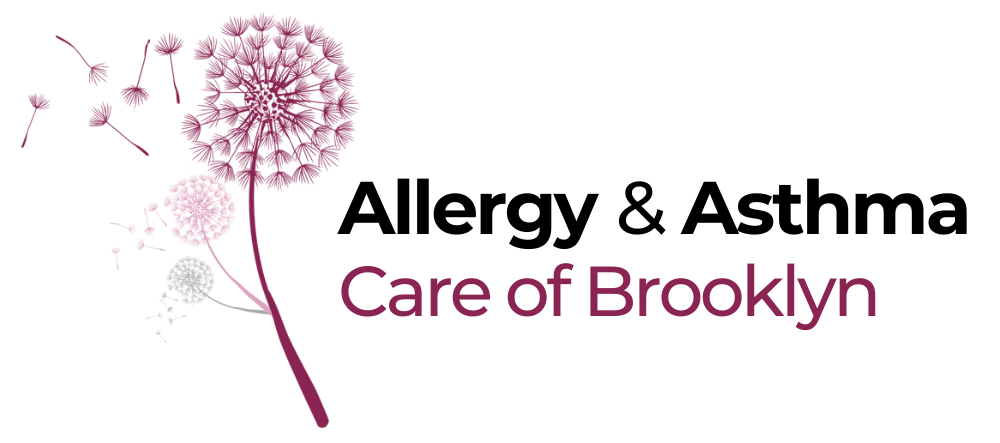Battling Seasonal Pollen Allergies
Signs, Symptoms, and Treatment Options
With the advent of spring, anticipation for blossoming flowers and sunnier days fills the air. However, for some individuals, changing seasons also ushers in the unwelcome symptoms of tree pollen allergies. Some patients develop symptoms also in the summer (due to grass pollen) or in the fall (due to fall weeds). Let's delve into recognizing the signs, addressing symptoms, and exploring diverse treatment avenues to empower individuals in tackling pollen allergies.
Signs and Symptoms of Seasonal Pollen Allergies
Pollen allergies, alternatively termed as hay fever or allergic rhinitis, manifest when the immune system reacts excessively to airborne pollen particles. Key signs and symptoms include:
Frequent Sneezing: Persistent and repetitive sneezing is a telltale indication of pollen allergies, often manifesting promptly upon exposure to pollen.
Nasal Congestion: Accompanied by a runny or congested nose, nasal blockage is another prevalent symptom. Such congestion can hinder nasal breathing.
Irritated Eyes: Pollen may provoke eye irritation, leading to itching, redness, and excessive tearing, referred to as allergic conjunctivitis. This discomfort intensifies during peak pollen seasons.
Throat Irritation: Postnasal drip stemming from allergic rhinitis can induce a scratchy or sore throat.
Dry Cough: Some individuals may develop a dry cough due to throat irritation resulting from post nasal drip.
Fatigue: Allergy symptoms, especially when they disrupt sleep, can induce feelings of fatigue and reduced energy levels.
Seasonal Allergy Treatment Options
Effectively managing pollen allergies entails a multifaceted approach involving avoidance strategies and medication. Consider the following treatment options:
Allergy Mitigation: First step is to get an allergy test to determine what you are allergic to so that you can properly avoid your allergens. Allergy testing is imperative to confirm the presence of pollen allergies.
Minimizing Exposure: Although entirely avoiding pollen may prove challenging, especially during peak periods, implementing measures to limit exposure can be beneficial. These measures include staying indoors during high pollen counts, keeping windows shut, utilizing air purifiers with HEPA filters, and wearing protective eyewear when outdoors.
Over-the-Counter (OTC) Remedies: Antihistamines like loratadine (Claritin) or cetirizine (Zyrtec) can mitigate symptoms such as sneezing, itching, and runny nose. Decongestants, available orally or as nasal sprays, offer relief from nasal congestion but may not be recommended in patients with some conditions (like high blood pressure). Adhering to dosage instructions and consulting healthcare professionals, especially with underlying health conditions, is crucial.
Nasal Corticosteroids: Medications like fluticasone (Flonase) or mometasone (Nasonex) effectively reduce inflammation and alleviate nasal congestion, sneezing, and runny nose. Not all nasal sprays are created equal! Over the counter nasal spray like oxymetazoline (Afrin) should never be used for more than 3 consecutive days.
Eye Drops: Over-the-counter or prescription eye drops containing antihistamines or mast cell stabilizers provide relief from itchy, watery eyes associated with pollen allergies.
Allergy Shots (Immunotherapy): Individuals with pollen allergy symptoms that are moderate to severe or resistant to conventional treatments may benefit from allergy shots. These injections gradually desensitize the immune system by administering minimal allergen doses, thereby reducing allergic reactions over time.
Allergy drops: patients now have the option to build up immune tolerance to pollen allergens by using allergy drops. Drops are administered at home and are a safe, effective and convenient way to treat pollen allergies without shots!
Conclusion
Enduring weeks of discomfort during the spring, summer or fall due to pollen allergies is not inevitable. By promptly recognizing signs, exploring treatment options, and proactively managing allergies, individuals can embrace the season's beauty without compromise. Should symptoms persist or worsen, seeking personalized guidance and treatment recommendations from an allergy specialist like Dr. Cascya Charlot an the team at Allergy and Asthma Care of Brooklyn.

